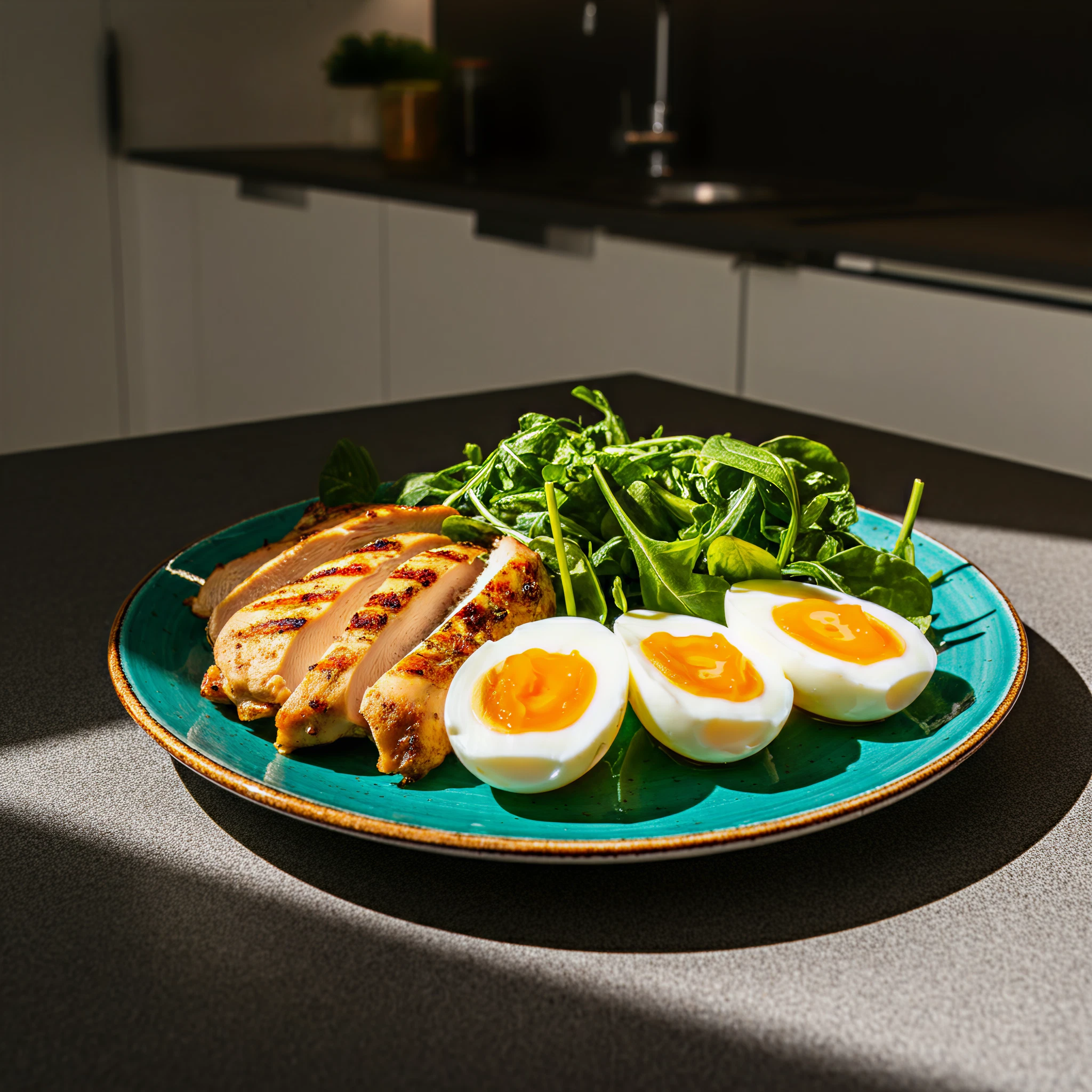When it comes to creating a diet that supports your fitness goals, weight loss, or simply a healthier lifestyle, the “high protein, low carb” approach continues to reign supreme. This dietary strategy isn’t just a passing trend; it’s a science-backed way to fuel your body with the nutrients it needs while minimizing excess carbohydrates.
Whether you’re a fitness enthusiast, health-conscious individual, or someone looking for practical weight loss tips, this guide will walk you through everything you need to know about a high-protein, low-carb diet. Plus, we’ll explore some must-try foods and tips to make this diet work seamlessly for you.
Why High Protein, Low Carb?
A high-protein, low-carb diet focuses on foods that are rich in protein while keeping carbohydrate intake to a minimum. Here are some key benefits of this approach:
- Weight Management
Protein keeps you feeling fuller for longer, which can help control appetite and reduce calorie intake. Meanwhile, reducing carbs can promote fat loss and stabilize blood sugar levels.
- Muscle Building and Maintenance
Protein is the building block of muscles. A diet rich in lean protein is essential for muscle repair and growth, especially after exercise.
- Improved Blood Sugar Regulation
Reducing carbs can help stabilize blood sugar levels, making this diet an excellent choice for those managing type 2 diabetes or insulin resistance.
- Boosted Metabolism
Your body uses more energy to digest protein compared to carbs or fat, which boosts your metabolism.
Essentials of Creating a High-Protein, Low-Carb Diet
1. Know Your Goals
Determine why you’re adopting this diet. Are you aiming for weight loss, muscle building, or better energy levels? Identifying your goals will help you tailor the portion sizes of protein and carbs to your unique needs.
2. Calculate Your Macronutrient Needs
Your daily protein and carb intake should align with your goals and lifestyle:
-
-
- Protein: Aim for 0.8–1 gram of protein per pound of body weight if you’re active or looking to build muscle.
- Carbs: Keep carbohydrate intake low, usually between 20–50 grams daily for individuals targeting weight loss or ketosis.
-
3. Choose the Right Foods
Here are some top high-protein, low-carb foods you can incorporate into your diet:
- Eggs (<1g carbs, 6g protein per large egg): Nutrient-dense and easy to add to any meal.
- Chicken Breast (0g carbs, 31g protein per serving): A versatile lean protein option for meals.
- Greek Yogurt (7.8g carbs, 19.9g protein per 7oz): A high-protein snack, perfect with a handful of nuts.
- Canned Tuna (0g carbs, 20g protein per 3oz): A shelf-stable protein for quick meals.
- Tofu (1.6g carbs, 8.7g protein per 3oz): A great low-carb plant-based option.
- Pumpkin Seeds (4.2g carbs, 8.5g protein per oz): A crunchy snack full of nutrients.
4. Plan Your Meals
Meal prepping is key to staying consistent. Include a balance of proteins, healthy fats (like avocado or olive oil), and plenty of non-starchy vegetables.
5. Stay Hydrated
A high-protein intake can require more water for proper digestion, so drink plenty of fluids throughout the day.
6. Experiment with Recipes
Keep your meals exciting! Try out low-carb protein recipes like stir-fries with chicken and veggies, egg-based muffins, or shrimp lettuce wraps.
Sample Day of Eating for a High-Protein, Low-Carb Diet
- Breakfast
Scrambled eggs with spinach and feta paired with avocado slices.
Macronutrients: 20g protein, 5g carbs
- Lunch
Grilled chicken salad with spinach, cherry tomatoes, and a lemon-olive oil dressing.
Macronutrients: 35g protein, 10g carbs
- Snack
Greek yogurt topped with pumpkin seeds and a sprinkle of cinnamon.
Macronutrients: 22g protein, 8g carbs
- Dinner
Baked salmon with steamed broccoli and a dollop of garlic butter.
Macronutrients: 40g protein, 5g carbs
Tips for Long-Term Success
- Stay Consistent
While it’s okay to have some flexibility, maintaining consistency with your macros is essential for results.
- Use Supplements
Incorporate options like whey protein isolate or collagen peptides to meet protein goals conveniently.
- Listen to Your Body
Everyone’s dietary needs are unique. Monitor your energy and adjust your portion sizes or food choices to suit your lifestyle.
Takeaway
A high-protein, low-carb diet is more than just about weight loss; it’s a sustainable lifestyle that improves overall well-being. From improving your energy to supporting muscle growth, this diet offers benefits for fitness enthusiasts, health-focused individuals, and those on a weight loss journey.
Start small and experiment with the foods and strategies listed above to craft a diet that feels enjoyable and fulfilling. Make the shift today, and fuel your body with nutrient-dense, wholesome foods.
If you’re ready to explore this diet further, check out our curated recipe library for meal inspiration. High-protein, low-carb living has never been tastier!








